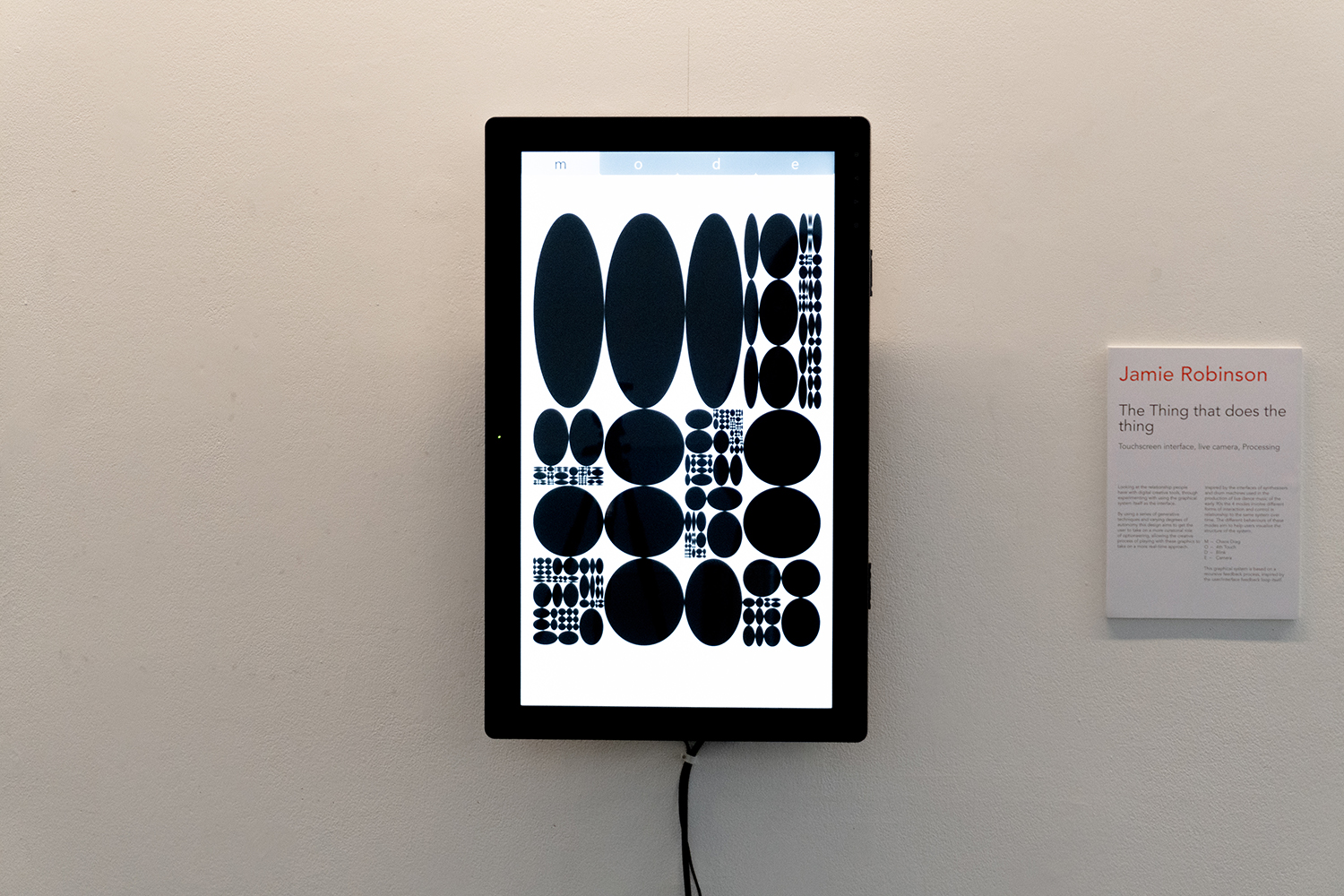The Thing that does the thing

Looking at the relationship people have with digital
creative tools, through experimenting with using the graphical system itself as
the interface.
By using a series of generative techniques and varying degrees of autonomy this design aims to get the user to take on a more curatorial role of optioneering, allowing the creative process of playing with these graphics to take on a more real-time approach.
Inspired by the interfaces of synthesisers and drum machines used in the production of live dance music of the early 90s the 4 modes involve different forms of interaction and control in relationship to the same system over time. The different behaviours of these modes aim to help users visualise the structure of the system.
By using a series of generative techniques and varying degrees of autonomy this design aims to get the user to take on a more curatorial role of optioneering, allowing the creative process of playing with these graphics to take on a more real-time approach.
Inspired by the interfaces of synthesisers and drum machines used in the production of live dance music of the early 90s the 4 modes involve different forms of interaction and control in relationship to the same system over time. The different behaviours of these modes aim to help users visualise the structure of the system.
M – Chaos Drag
O – 4th Touch
D – Blink
E – Camera
This graphical system is based off of a recursive feedback process, inspired by the user/interface feedback loop itself.
O – 4th Touch
D – Blink
E – Camera
This graphical system is based off of a recursive feedback process, inspired by the user/interface feedback loop itself.



